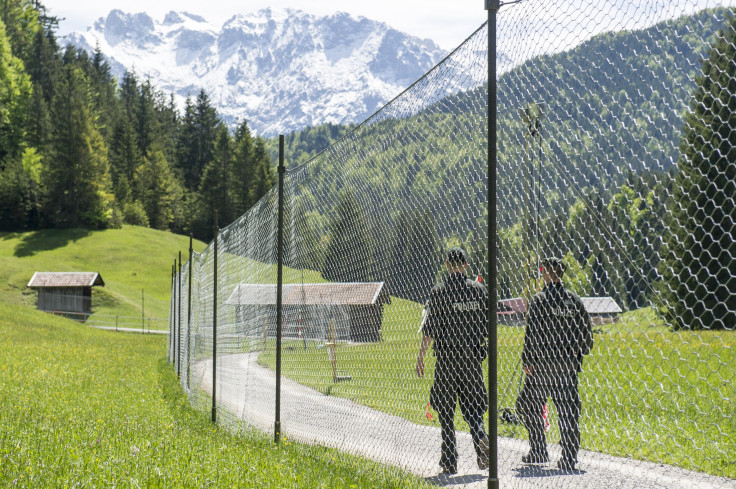Berlin School Builds Anti-Prostitute Fence To Secure Campus

A Berlin school constructed a 6-foot fence intended to keep prostitutes and other unwanted guests off the campus, German media reported Tuesday. City officials spent €57,000 (or $67,000 in U.S. currency) to erect the wall.
The Französisches Gymnasium high school sits on one of Germany’s most notorious side-streets in Berlin's capital of Kurfürstenstraße. Residents considered the area to be a red-light district, full of drugs and prostitutes, according to Berlin’s daily newspaper, Berliner Zeitung.
Prostitutes can be seen walking the streets and servicing clients throughout the day, according to the Berliner. A build-up of condoms, drug paraphernalia and human excrement near campus convinced school officials to start construction of the wall.
"There were always complaints about unscrupulous characters including prostitutes walking shamelessly and illegally into school grounds even during the day," district school inspector Carsten Spallek told the Berliner Tuesday.
City development reportedly forced the sex workers closer to the school grounds and away from the areas where they previously conducted business.
"The prostitutes eat, stand, drink and litter. It looks filthy in the late evening," district coordinator Michael Klinnert told the Berliner.
He added, "The women have no stations to wash themselves or to get themselves ready. And they relieve themselves wherever they please."
The Französisches Gymnasium lamented the presence of the unwanted individuals. Klinnert cited that every morning the prostitutes arrived in vans outside the school. Most residents reportedly welcomed the wall.
Germany officially legalized prostitution in 2002 and most sex workers utilized brothels to service their clients. Unlike most cities, Berlin doesn’t have restricted areas, leaving prostitutes to do business openly.
The German Congress announced legislation in 2016 that further sanctioned prostitution and reduced sex enslavement. The legislation required all sex workers to register with law enforcement. Sex workers are also required to participate in regular health screenings and mandated condom use.
The legislation, which launched July 1, established licensing requirements for brothels.
"It is harder to open up a snack bar than a brothel in this country," said former German Minister of Family Affairs Manuela Schwesig, after she announced the law in the German Bundestag last year.
Most sex workers feared registration, according to Silvia Vorhauer, a counselor at Dortmund's Mitternachtsmission, an organization that helps former prostitutes.
"Why can't women simply go to the tax authorities and register there? Registration at the local government office leads to the stigmatization and criminalization of women," Vorhauer told Deutsche Welle last year.
The prostitute registration is dangerous, according to Vorhauer, because it might force prostitutes to work off the books.
Not everyone favored the registration law. Organizations such as the Federal Association of Sex Services (BSD) and Hydra — a counseling and support service — as well as aid organizations like Sowoldi and Sisters, which assists victims of forced prostitution, are against it.
"Prostitution is not a service; prostitution is violence," Sowoldi founder Lea Ackermann told the Deutsche Welle.
She added, "The envisaged legal regulations, like compulsory registration for women, compulsory use of condoms or requirements for brothel owners, will create a bureaucratic monster.”

© Copyright IBTimes 2024. All rights reserved.





















